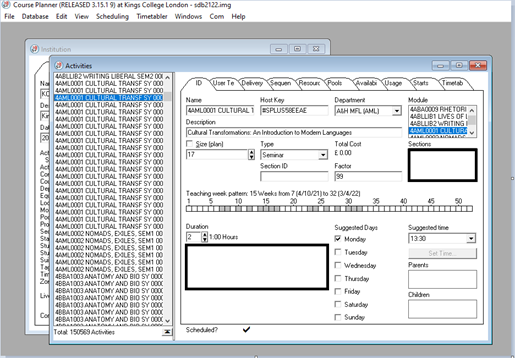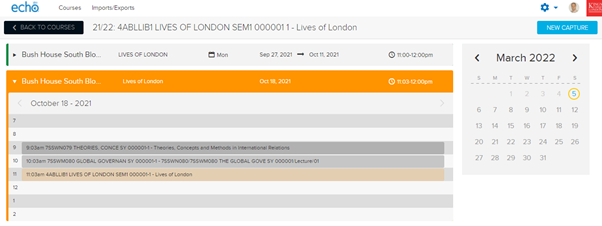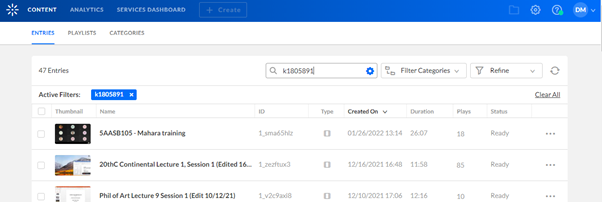This article has been divided in two parts. Part 1 explains the online teaching challenges created by Covid-19. Part 2 presents the outcomes and conclusions after 2 years teaching online.
Covid-19 forced almost all teaching online in extremis and for an extended period of time. This was followed by at least a year of crisis management; attempting to continue to deliver the core functions of the College in the face of a global pandemic. Almost overnight TEL went from a support function to being of central importance to teaching and learning. Tools that may have been peripheral became, in effect, core. New tools rapidly became universal. The barriers between the substance of teaching and its delivery mechanisms began to dissolve. IT and TEL colleagues deserve immense credit for the way they managed the sudden massive increase in demand for their services, time and expertise. With the crisis period of the pandemic hopefully in the past, we can now reflect on the enhancements that have come about in our working practices, whether these were created or accelerated by necessity and which we choose to keep for the future. Some of the observations below are concrete, others are my personal reflections or opinions voiced by colleagues.

One of the counter-intuitive aspects of lockdown was that the impediments of geographical distance (whether across the campuses, the country or the world) disappeared for TEL teams. Where previously we may have hesitated to reach out to colleagues who were based in other teams or on other sites, the convenience of online communication and – often – the pressing need meant that teams were drawn closer together. My own primary contacts, prior to Covid, were with CTEL (Centre for Technology Enhanced Learning) and the Service Desk, but I have found myself working much more closely and establishing strong working relationships in recent years with (for example) Collaboration Platforms, Supplier Management, Timetabling, King’s Online, Audio Visual Services and so on. Making these connections, either to solve a specific issue or as part of wider networking, is something we all now seem to do naturally and unselfconsciously.
Many TEL Teams at KCL expanded significantly in response to Covid. Newer colleagues, to be frank, have known no different and have become rapidly indoctrinated into online collaborative ways of working! A colleague who joined King’s during the pandemic – and who has only experienced our current ways of working – wrote to me that “especially for new starters during Covid when they didn’t get to meet colleagues in person, us all being in a meeting together once a week helped to encourage a feeling of belonging that probably would not exist if we were on campus and never got to meet people located on different campuses.” Despite their supposed inferiority to the osmotic environment of everyday office life (how do you share a water cooler moment if you are stood at two different water coolers in two different London boroughs?), our online meetings have clearly been superior in building a sense of community and shared endeavor. This is not to denigrate f2f meetings, and I have enjoyed seeing old colleagues again and meeting new ones for the first time. The social side of our work, the basic human interaction, working relationships that are also friendships: we almost certainly cannot mediate these things through technology. We shouldn’t try to.

Even as the devolved (Faculty) TEL teams have grown, the sense of their operating independently in their silos has continued to erode. It may be illustrative to reflect on whether you feel you belong to the TEL function or to your Faculty or Directorate (or to both in some blend), and if you may have given a different answer in 2018 as to now? There is significant peer-to-peer support between the TEL teams, much of which may not be regularly or widely surfaced, which has massively aided this organic growth. Inevitably, MS Teams has played a huge part in this. This has gone from being the service-that-would-one-day-replace-Skype to probably our most important communication and collaboration platform. An existing/pre-Covid small MS Team for the TEL Managers on the Strand has expanded to encompass all TEL staff in A&S (with special guests from the Medical School!) This has become first-port-of-call for many questions emerging from the TEL teams. One recent example of peer support here was a request from one Faculty for advice on troubleshooting the Announcements Forum – which prompted responses from three other Faculties within the hour. One of our colleagues writes to me “Being able to ask questions there has helped me immensely and made survival possible last year, so thanks again for having us there!” This Team has allowed for the effective pooling of a much wider variety of experiences and expertise than might previously have been possible.
There has also been greatly enhanced use of Teams Chat, not only for quickfire requests but for maintaining an informal and sustained documentary record, for example in testing that myself and colleagues are currently undertaking on the Kaltura Management Console. But, say, the asynchronous function of the TEL Weekly chat is so much more than just a record of the meeting. (One possible downside here, for colleagues providing services, is that it is sometimes necessary to steer colleagues off Teams Chat and back towards your shared email inboxes and ticket queue, where an issue is complex or a paper trail is required).

Online meetings such as KEATS Advisory and Kaltura Super Users have provided a forum to share, learn, discuss etc. These groups are more agile, less formal and – I believe – more productive than those which went before. Compare, in your mind, the Wednesday morning TEL Weekly of today with the Digital Education Central meetings of yesteryear…
Written by David Reid Matthews
David is the TEL manager for the Faculty of Arts & Humanities.
1 thought on “Part 1: Reflections on collaboration/cross-institutional working in response to and after Covid-19”